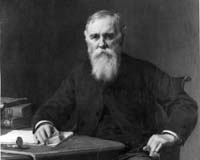History of Harvard University
== History of Harvard University ==
Harvard University is a private Ivy League research university in Cambridge, Massachusetts. Established in 1636 and named for its first benefactor, the Puritan clergyman John Harvard, it is the oldest institution of higher learning in the United States and among the most prestigious in the world.
Founding and Early Years[edit | edit source]
Harvard was founded on September 8, 1636, by vote of the Great and General Court of the Massachusetts Bay Colony. Initially called "New College" or "the college at New Towne," it was renamed Harvard College on March 13, 1639, after John Harvard, who left the school £779 and his library of some 400 books. The early curriculum was based on the English university model, with an emphasis on the classics and the Puritan tradition.
18th Century[edit | edit source]
During the 18th century, Harvard's curriculum and students became increasingly secular. The school saw the establishment of the first student organization, the Hasty Pudding Club, in 1795. The American Revolution had a significant impact on the university, with many students and faculty participating in the war effort.
19th Century[edit | edit source]
The 19th century was a period of significant growth and change for Harvard. Under the leadership of President Charles William Eliot, who served from 1869 to 1909, Harvard transformed its curriculum and institutional structure. Eliot's reforms included the introduction of elective courses, small classes, and the establishment of graduate programs. The Harvard Law School, Harvard Medical School, and Harvard Business School were all established during this period.
20th Century[edit | edit source]
In the 20th century, Harvard continued to expand its influence and reputation. The university played a significant role in both World Wars, with many students and faculty serving in the military. The post-war period saw a significant increase in the university's endowment and the expansion of its campus. Harvard also became more diverse, admitting women to its undergraduate programs in 1977 after merging with Radcliffe College.
21st Century[edit | edit source]
In the 21st century, Harvard has continued to be a leader in education and research. The university has embraced technology and innovation, with significant investments in online education and interdisciplinary research. Harvard's endowment, the largest of any academic institution, has allowed it to attract top faculty and students from around the world.
Notable Alumni[edit | edit source]
Harvard has produced many notable alumni, including eight U.S. presidents, numerous foreign heads of state, and many influential figures in business, science, and the arts. Some of the most famous alumni include John Adams, Theodore Roosevelt, Franklin D. Roosevelt, John F. Kennedy, and Barack Obama.
Related Pages[edit | edit source]
- Harvard College
- Harvard Law School
- Harvard Medical School
- Harvard Business School
- Radcliffe College
- Ivy League
- Cambridge, Massachusetts
- John Harvard (clergyman)
Search WikiMD
Ad.Tired of being Overweight? Try W8MD's physician weight loss program.
Semaglutide (Ozempic / Wegovy and Tirzepatide (Mounjaro / Zepbound) available.
Advertise on WikiMD
|
WikiMD's Wellness Encyclopedia |
| Let Food Be Thy Medicine Medicine Thy Food - Hippocrates |
Translate this page: - East Asian
中文,
日本,
한국어,
South Asian
हिन्दी,
தமிழ்,
తెలుగు,
Urdu,
ಕನ್ನಡ,
Southeast Asian
Indonesian,
Vietnamese,
Thai,
မြန်မာဘာသာ,
বাংলা
European
español,
Deutsch,
français,
Greek,
português do Brasil,
polski,
română,
русский,
Nederlands,
norsk,
svenska,
suomi,
Italian
Middle Eastern & African
عربى,
Turkish,
Persian,
Hebrew,
Afrikaans,
isiZulu,
Kiswahili,
Other
Bulgarian,
Hungarian,
Czech,
Swedish,
മലയാളം,
मराठी,
ਪੰਜਾਬੀ,
ગુજરાતી,
Portuguese,
Ukrainian
Medical Disclaimer: WikiMD is not a substitute for professional medical advice. The information on WikiMD is provided as an information resource only, may be incorrect, outdated or misleading, and is not to be used or relied on for any diagnostic or treatment purposes. Please consult your health care provider before making any healthcare decisions or for guidance about a specific medical condition. WikiMD expressly disclaims responsibility, and shall have no liability, for any damages, loss, injury, or liability whatsoever suffered as a result of your reliance on the information contained in this site. By visiting this site you agree to the foregoing terms and conditions, which may from time to time be changed or supplemented by WikiMD. If you do not agree to the foregoing terms and conditions, you should not enter or use this site. See full disclaimer.
Credits:Most images are courtesy of Wikimedia commons, and templates, categories Wikipedia, licensed under CC BY SA or similar.
Contributors: Prab R. Tumpati, MD



